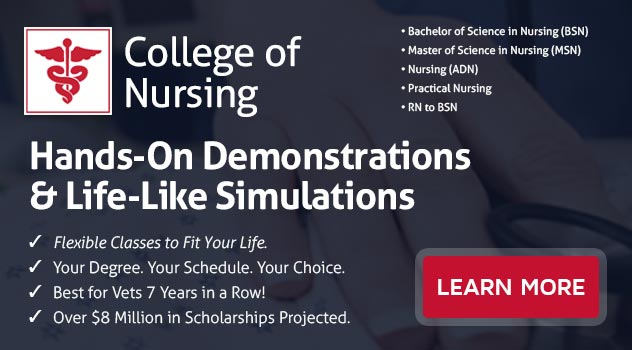Why is a BSN Degree Important for Nurses?
If you're already an RN but only hold an associate's degree in the field, you're probably aware that many professionals in your role have a slightly higher level of education. It's never too late to upgrade your own education if you want to join them. Going back to school to earn your Bachelor's of Science in Nursing (BSN) might be a challenge, but the payoff will be worth it in the end. You'll be a better nurse with better credentials to prove it, benefitting both you and your patients.
Why Should You Do It?
You're living proof that someone can be a nurse without holding a BSN, but that doesn't meant that there aren't advantages to doing so. A BSN is a more comprehensive education for a nurse that reflects a greater level of competence and versatility in the field. A nurse who holds one is more likely to be an advanced practice registered nurse or hold a management position or academic title, rewards commensurate with that increase in value.
Getting a BSN should teach you how to manage the health of your patients on several extra levels. With it, you should be able to take on far more duties and potentially operate with more independence as a health care practitioner. This could allow you to get more personal satisfaction out of your work and maybe even secure a pay raise as well. At a time when nurses are taking on a much greater role in health care in general, this type of training has never been more useful to have.
Challenges You May Face
Even though a BSN degree is a huge advantage for any nurse, there are some potential problems you should be prepared to face as you work toward one. As a licensed and practicing nurse, you are already familiar with how hard it was to learn the things that got you where you are today. Completing a bachelor's degree in this field is going to be even harder.
One of the things that you're up against is your own age: as an older student, you may feel like you'll be out of place at school, or that you won't be able to learn as well as the younger students. You may also be concerned about how you'll be able to keep up with your family or financial commitments while you study. There's no real need to worry about these, however - 40% of undergraduate students are over 25 years old, so you can rest assured that most people successfully overcome these obstacles.
The more pressing issue is how you'll handle the coursework itself - it could be very different from what you're used to. Instead of learning about how to care for patients directly (since you already know a lot about that), you'll be learning much more about strategies to organize, analyze, coordinate and communicate while you're working.
Expect to take a lot of courses in things like sociology and leadership training to improve your interpersonal skills, as well as courses in health information management and computer systems to better catalogue and understand the condition of your patients.
Putting Your Best Foot Forward
If you want to make the most of this chance to learn and succeed, you have to come into it prepared. You can start to get ready for this before you even enter the program. When at work, keep an eye out for difficult situations that you wish you had the skills to manage more effectively or duties that you must pass to others because you lack the ability to do them yourself.
These are instances in which the things you learn during a BSN program would come in handy, and they serve as real-world examples of how you'll be able to apply your knowledge in the future. Use them as a pathway to understanding how the abstract concepts you're learning about might be applied to your daily work, and draw upon those thoughts to keep yourself motivated throughout each term.
As well, you should also make sure you've carved out an adequate amount of time to truly absorb what you're learning. Be ready to treat your classes as part of your professional workload and give them as much of your time and attention as you need to get the concepts down. BSN programs also come with a hands-on component to cement the knowledge in your mind, and it's vital that you go into those feeling alert, confident, and ready to actively participate. What you learn will serve you throughout the rest of your career, so it's worth your while to pay special attention to it.
Are You Ready to Begin Your Journey to BSN?
Now that you've learned more about why getting a BSN is a good idea, are you ready to take the next steps to move forward in your career? ECPI University's Bachelor of Science in Nursing Degree program is specifically geared toward RNs looking to do exactly that. Get in touch with a helpful admissions counselor today.
It could be the Best Decision You Ever Make!
DISCLAIMER – ECPI University makes no claim, warranty, or guarantee as to actual employability or earning potential to current, past or future students or graduates of any educational program we offer. The ECPI University website is published for informational purposes only. Every effort is made to ensure the accuracy of information contained on the ECPI.edu domain; however, no warranty of accuracy is made. No contractual rights, either expressed or implied, are created by its content.
Gainful Employment Information – Bachelor of Science in Nursing – Traditional Track
For more information about ECPI University or any of our programs click here: http://www.ecpi.edu/ or http://ow.ly/Ca1ya.




